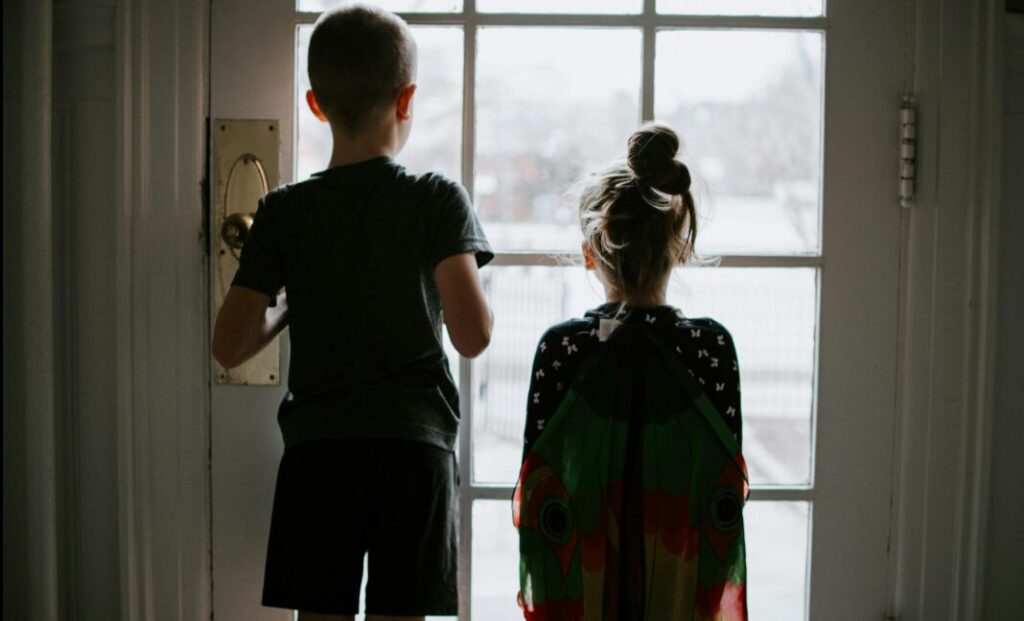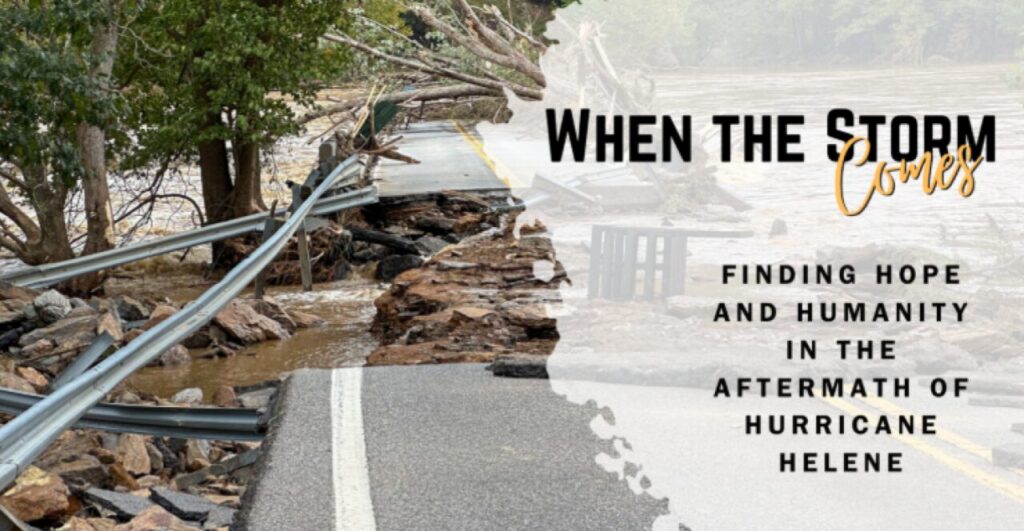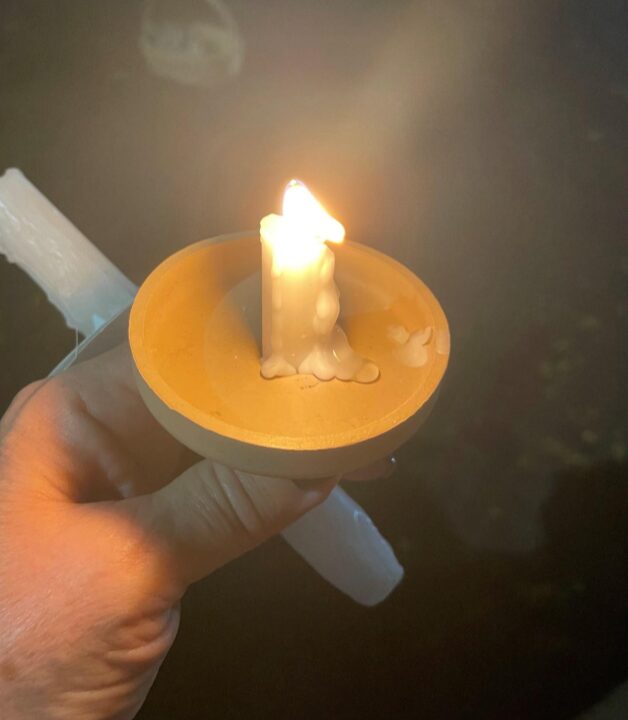Hope for Creation
This is our week to begin this period of waiting and watching.

This period is where we look for what new thing is God doing in this world. How is God breaking into our world today? What hope, peace, love, and joy is God bringing?
The thing I was sitting with was this idea of what are we longing for right now? And as I was writing this sermon, my dog came up and pestered me. I thought, I know what she wants. She wants fewer people. It’s been a busy week. She wants fewer people in the house, fewer dogs in the house, and a little bit less noise. Let’s go back to normal, right? Let’s have that normal life again, that simpler life.
But the reality of normal is that we’re using those rose-colored glasses. What we think is normal is more of a dream that probably never existed anyway. We paint everything and smooth out all the edges so that we only remember the good parts and forget all the hard parts. But life is hard. That’s a reality.
We need to remember that the point of coming together is so that we support one another in all of the hard stuff. It can be nice to support one another in the fun stuff and the good stuff. We all like that. But we need one another in the hard stuff and when life gets real.
So, I was thinking about, based on our vision and mission, what are we longing for?
What came to me was compassionate care for creation. Our scripture today (Luke 2:1-3 & Romans 8:18-25) is about creation, and we’re looking to give that compassionate care and to share that with one another, with the world, and with our community.
To try to be there for one another. What does that look like? Well, back in early November, I read this article by Guy Sayles, who is a pastor in Western North Carolina. He wrote about the experience of Hurricane Helene, where the mountains of North Carolina never experienced anything like that before.

What he talked about first was a quote from Mr. Rogers that Mr. Roger’s mother always told him when things were going wrong, “Look for the helpers. There are always helpers.”
Who are the helpers and what are they doing? He started looking around at what was happening in his community, which was devastated. Hurricane Helene was a leveler or an equalizer of sorts. I don’t mean that in a good way. But, it brought the helpers. It brought the religious and the other non-profit volunteers to help. It brought FEMA and the Army Corps of Engineers. It brought the North Carolina National Guard and the state and local agencies.
But more than that. It brought neighbors out to help one another. A woman who had rain barrels started tapping off the water so that people had water to flush their toilets. Another neighbor who had a generator put it in their driveway and set it up as a charging station so everybody could come and charge their phones or other devices. Neighbors who had freezers that no longer had electricity started handing out the food because it was going to thaw and go bad.
Guy said people would sit around the generator as their devices were charging and they got to know one another. They learned to trust one another. They became a community. They gave each other hope in the middle of this disaster. They were there for each other. That’s where our hope can come from.
So today we have this letter from Paul.
If you are a regular attendee, you know that I struggle with Paul because he has this circular logic that he uses and you can get very confused. But before I get to that, I do want to talk about the fact that this is Paul’s letter to the Christians in Rome. I usually say to the churches in Rome, and I’m afraid that I might be misrepresenting that to you. They didn’t have cathedrals and the Vatican didn’t exist, this was before that.
At the time of Paul’s letters people were gathered in homes and they were of all ages and all economic groups. They were the merchants, the slaves, and even the destitute. They all came together, just like in Acts. They talk about everyone came together and shared as there was need. Kind of like that story about the hurricane. Same idea. These communities would come together and the message of Jesus’s love, the available salvation, and this equalizing love. Everybody was included. It was this inclusiveness that attracted the people and the reason Christianity grew.
So to them, Paul is saying the difficult times of pain throughout the world are simply birth pangs. Some of us know what it’s like to be pregnant. It’s uncomfortable and it’s challenging, but it’s not only around us, it’s within us. I think right now, when I look at the world and I look at us, we want something new. We want something new to come out. We want more justice for people. Not less. We want more inclusivity. We want more freedom, not less. We want more liberty, not less.
Imagine a pregnant person, how we get larger. We, of course, don’t see what is enlarging us, but that is our hope. That is this thing that God is building among us. But, the longer we wait, the larger we become and the more joyful our expectancy. So something is coming. A real justice with peace that we don’t know what that looks like yet.
But it’s going to be hard to get there. It’s going to involve pain and it’s going to mean that we have to come together and work together to survive it.
As I was walking the dogs yesterday morning, another dog walker had lost his gentle leader.
So this morning I brought him a gentle leader and handed it to him. He said I feel like other dog owners are supporting me. And I said, well, isn’t that what we’re supposed to do? That’s being community. I have something that I no longer need and you need it. Why would I not give it to you? I don’t need anything. You don’t need to buy it from me. I can just give it to you.
Our materialistic consumeristic culture starts to program us where we think that we have to pay for everything and we think that if we own it then it’s worth something and we ought to get something for it. Maybe we can just share this idea of justice.
So do we really long for a better world? Do we really want to figure out more of what this hope that’s coming is about?
Advent is a reflective season where we’re called to think. It’s not by chance that this hits in December as the trees have now let go of their leaves. They’re going into this dormant time. The nights are getting longer. We’re to rest more and take more time to slow down.

And what do we do instead? Fill everything with lights, loud music, and bright colors as we try to ward off the darkness. But if we can accept some of the darkness, we can light a candle. We don’t have to be in the pitch dark, but if we can take the time to stop and to give thanks to God, then to think, to reflect on our days.
Where was I merciful? Where was I loving and where did I fail? Because we all have those moments that aren’t our best.
It’s good for us to think about these and then to listen to our hearts because that’s where the still small voice of God is speaking. That’s where Christ meets us, in the quiet and the listening.